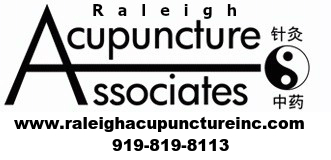
An article published in the Journal of Clinical Sleep Medicine explored acupuncture’s powerful influence on a wide variety of neural and hormonal mechanisms affecting the sleep/wake cycle. Specifically, they examined acupuncture’s impact on the insomnia autonomic nervous system connection. As part of their evaluation, the investigators documented several otherwise intractable insomnia cases to demonstrate acupuncture’s effectiveness in treating poor sleep.
Understanding Acupuncture
Acupuncture involves inserting and manipulating needles at specific points on the body to relieve symptoms, achieve therapeutic effects, and prevent more severe medical conditions. Practitioners have utilized acupuncture for over 3000 years with beneficial clinical effects on many disorders, including bodily pain, headaches, asthma, inflammatory diseases, nausea and vomiting, gastrointestinal dysfunction, substance abuse, and anxiety.
Researchers conducted a systemic review on the clinical effects of acupuncture in treating insomnia, including studies in English and Chinese literature through July 2007. 93% of the 30 studies meeting inclusion criteria showed positive results of acupuncture in improving sleep. Improved sleep outcomes included reduced sleep latency, increased sleep and wake ratio, enhanced sleep duration and quality, and resolution of insomnia symptoms.
Studies comparing acupuncture with medications all showed more significant benefits of acupuncture, although drugs achieved results more rapidly and acupuncture required more treatments to surpass the effectiveness of the medicine. Maintenance of acupuncture treatment effects was up to 3.5 years at follow-up. In addition, researchers examined the insomnia autonomic nervous system connection – the growing evidence that the autonomic nervous system served to mediate acupuncture’s beneficial effects in treating insomnia.
INSOMNIA AND HYPERAROUSAL
Investigators examined hyperarousal as it related to insomnia. Hyperarousal occurs when a person’s body becomes highly alert when thinking about past trauma. A growing body of evidence supports the notion that insomnia involves imbalances in the central and autonomic nervous systems. For example, individuals with poor sleep are more alert on tests of daytime alertness and have elevated measures of high-frequency brain activity during sleep. Furthermore, people with insomnia may have enhanced activation in particular brain regions, higher metabolic rates, body temperatures, heart rates, cortisol levels, and overactive hypothalamic-pituitary-adrenal (HPA) axes.
ACUPUNCTURE AND AUTONOMIC FUNCTION
Investigators believe acupuncture is a unique and effective treatment for insomnia because it directly acts on the autonomic nervous system. Specifically, acupuncture influences various autonomic activities, including blood pressure, pupil size, skin conductance, skin temperature, muscle sympathetic nerve activities, heart and pulse rate, and heart rate variability.
Interestingly, the question of how acupuncture produces changes in autonomic activities remains a mystery. Western scientists have long sought to understand the powerful healing effects of acupuncture, only to find unproven hypotheses and speculation. However, acupuncture’s positive results speak for themselves. Investigators have conducted more research on the beneficial effects of acupuncture than all other alternative medicine therapies combined, including chiropractic, physical therapy, homeopathy, and massage.
Traditional acupuncture requires activation of Deqi (pronounced “De Chee”), translated as “getting the energy” sensation, achieved by gently manipulating the needle after insertion. Patients experience Deqi as local soreness and heaviness at the site of the needle, as well as a mild, radiating nerve sensation. The sensation lasts just for a brief moment but is essential to activate the healing process of acupuncture. Researchers have long hypothesized acupuncture produced pain relief effects by regulating the autonomic nervous system. Now, this connection is expanding to acupuncture’s beneficial effect on the insomnia autonomic nervous system connection.
Acupuncture Point Specificity
Clinical data suggests that acupuncture produces specific effects on the autonomic nervous system. Acupuncture Point Specificity holds that specific acupuncture points directly influence various effects on the autonomic nervous system. Such effects include:
- Facilitating parasympathetic activities while suppressing sympathetic activities (PC4, GV14, PC6, Sishencong, BL15).
- Significantly increasing parasympathetic activity without affecting sympathetic activity (Auricular pt: LU).
- Coactivation of parasympathetic and sympathetic activities (LI11).
- Increasing segmental sympathetic vasomotor activity with central sympathetic inhibition (LI4, ST36).
- Obtaining stimulus type specificity. For example, performing acupuncture with electrical stimulation stimulates autonomic activity.
These findings signify the uniqueness of acupuncture in achieving specific effects that other modalities cannot achieve, which only produce generalized effects.
MECHANISMS UNDERLYING ACUPUNCTURE’S CLINICAL EFFECTS
Research shows that acupuncture modulates activities of the sympathetic and parasympathetic nervous systems that are essential for cardiovascular function, including regulation of heart function, blood pressure, and heart rate. This confirmation has led to its clinical use in managing various cardiovascular diseases, such as hypertension, ischemic heart disease, and cardiac arrhythmia.
In addition, scientific and clinical studies indicate that acupuncture regulates neurotransmitters and hormonal factors, including:
- Endorphins
- Serotonin
- Norepinephrine
- Adrenocorticotrophic hormone (ACTH)
- Cortisol
- Acetylcholine (Ach)
- Melatonin
- Substance P
- Neuropeptide
- Gamma-aminobutyric acid (GABA)
- Nitric oxide
These play a significant role in sleep regulation, higher cortical function, the hypothalamic-pituitary-adrenal axis, and the somatovisceral reflexes. So let’s take a more detailed look at each of these factors.
Endorphins
Acupuncture enhances endorphin production for its various actions, notably for pain relief. In addition, some studies suggest that the sleep-promoting effects of electroacupuncture are associated with opioid neuron stimulation, which increases the concentration of beta-endorphins and mu-opioid receptors.
Serotonin
Acupuncture accelerates the synthesis and release of serotonin in the central nervous system.
Norepinephrine
Acupuncture increases norepinephrine levels in the caudate nucleus and diencephalon while decreasing plasma levels.
Adrenocorticotrophic hormone (ACTH)
Acupuncture modifies ACTH serum levels while treating various conditions.
Cortisol
Investigators have observed acupuncture’s effect on increasing cortisol serum levels when treating heroin addicts.
Acetylcholine
Acupuncture regulates acetylcholine and cholinesterase while treating pain.
Melatonin
Researchers have observed increased melatonin levels with certain acupoint combinations when treating insomnia in anxiety patients.
Substance P
Acupuncture likely modulates substance P via opiate pathways leading to anti-inflammatory effects when treating asthma.
Gamma-aminobutyric acid (GABA)
Investigators observed acupuncture’s ability to up-regulate GABA expression when treating ischemic vascular events and alcohol withdrawal symptoms. In addition, they have documented the release of GABA when treating rats with electroacupuncture.
Nitric Oxide
Stimulating specific acupuncture points increases nitric oxide content in the brain and serum, which is clinically associated with sleep promotion.
Acupuncture Regulates Neurotransmitters
Acupuncture’s regulation of neurotransmitters and hormonal factors is complex and can exert opposite effects, depending on the location of acupoints and techniques used in clinical applications.
- Acupuncture point CV4 can elevate ACTH levels and improve immunity when treated with moxibustion (heating of the acupoint). Alternatively, combined with electrical stimulation, CV4 can suppress ACTH levels for treating substance addictions (heroin, alcohol, cigarettes).
- Acupoint PC6 provides cardiovascular regulation and postoperative nausea suppression. In addition, it reduces nausea and vomiting. In another clinical study, PC6 regulated serotonin levels for treating generalized anxiety disorder, lowering plasma levels of serotonin.
- Electroacupuncture of GV20 and SP6 reduced chronic stress-induced depression in rats, generating up-regulation of both serotonin and acetylcholinesterase activities in the hippocampal region.
- Acupuncture boosts norepinephrine in the brain while decreasing norepinephrine in plasma.
- Animal models observe up-regulation of GABA expression after acupuncture, producing neuroprotective effects.
Acupuncture – Superior Treatment Option
Acupuncture’s bidirectional influence (increasing one factor while decreasing another) gives it a considerable advantage in treating complex diseases. Rather than a pharmacological agent acting with a single-directional effect and often carrying adverse reactions, acupuncture modulates the nervous system to achieve the desired balance. Notable is acupuncture’s insomnia autonomic nervous system connection.
For instance, β-blocker medications can down-regulate sympathetic tone. However, their nonspecific and unbalanced effects on sympathetic activities can also cause side effects. Therefore, using propranolol to treat insomnia proves ineffective. In addition, it has numerous adverse central nervous system side effects, including vivid dreams, nightmares, and depression.
Alternatively, acupuncture successfully treats insomnia and other conditions with minimal side effects, likely by mediating the regulation of the autonomic nervous system using bi-directional balancing mechanisms. These conditions include bodily pain, headaches, asthma, inflammatory diseases, nausea and vomiting, gastrointestinal dysfunction, substance abuse, and anxiety.
Additional Insomnia Acupuncture Resources
Read about the Three Insomnia Case Studies describing the insomnia autonomic nervous system connection.
Watch Video About Our Insomnia Treatment.
First Insomnia Acupuncture Research Study.
Second Insomnia Acupuncture Research Study.
Insomnia Acupuncture Case Study.
Next Steps
BOOK NOW to schedule an appointment online.
Learn about all the conditions we treat.
REFERENCE
Huang W; Kutner N; Bliwise DL. Autonomic activation in insomnia: the case for acupuncture. J Clin Sleep Med 2011;7(1):95-102.Ina
Focus Keyphrase: Insomnia Autonomic Nervous System Connection
Photo by Keira Burton: https://www.pexels.com/photo/unrecognizable-woman-with-laptop-resting-on-bench-in-park-6084489/


What our Clients are Saying
Turning to acupuncture was my last resort to battling insomnia. I had been prescribed two heavy sleep aids with no success. After the third appointment, I went from averaging less than 2.5 hours of sleep to over seven, without any sleep aids. I still go and pretty sure I wouldn’t be here today without success from Raleigh Acupuncture.
Raleigh Acupuncture was recommended by a friend after I mentioned my insomnia and dependency on a sleeping pill. My apprehension was short lived because of the results of my visits to Dr. Mark. With acupuncture treatments and Chinese herbs I was able to begin sleeping well and continue to do so. Dr. Mark is a good listener and encourages his patients in all health issues as well as the original purpose for treatment. Consequently, my knees are stronger and I’m walking better and with more confidence. I haven’t had the need for a cortisone shot in a year and a half. Occasionally, I would use a cane and it’s now somewhere gathering dust. Also, I had a persistent headache that my primary physician had no solution for, and after two acupuncture treatments it’s a thing of the past. Hot flashes were another issue that was treated successfully. I am so grateful to have found a knowledgeable and caring person to treat my ailments, many of which I thought would only grow worse as I aged. Generally, I feel healthier.





I would like to thank Raleigh Acupuncture for the wonderful and very helpful treatments. I had been seeing them for my insomnia, which was making excellent progress at the time and has since been cured. On a previous Monday I was involved in a minor traffic accident. Due to the stress of the accident on Tuesday I awoke in a severe flare-up of my fibromyalgia. The pain was so bad I took pain killers and stayed in bed for the day. The following day I had an appointment with Dr. Mark which I wanted to cancel. My husband suggested I keep the appointment and tell Dr. Mark about the pain. After our discussion, he modified the treatment he had planned for me and treated the pain. I came home, took another pain pill and went back to bed. The following morning I woke pain free and have been since, which is about 2 to 3 months. Thanks again Raleigh Acupuncture!
I became a patient of Raleigh Acupuncture in 2007. I did a lot of research prior to selecting them and I never regretted it. Over the years, I have been treated for various conditions – insomnia, an auto-immune disease, a herniated disk, etc. I have recommended Raleigh Acupuncture to various friends and family members.
I highly recommend the practitioners of Raleigh Acupuncture. I’ve seen them for several years and have always recommended them highly and without hesitation to many of my friends, all of whom have been equally thrilled with the care provided. They are genuinely interested in your health and general well-being, with a focus on getting you healed quickly and gently. My hot flashes are GONE! and the Chinese herbs for sleeplessness are awesome too!
I haven’t slept well for 20 years. That all changed when I was treated at Raleigh Acupuncture for my insomnia. They said it would take 12 treatments, so I took a leap of faith and tried it. I saw changes start to happen after just a few treatments. Over the course of three months I was able to sleep better and better. I weaned myself off of Ambien, and am now sleeping like a baby again. I never thought I’d see the day! It really worked. And guess what? I’ve got more energy now. Imagine that – a good night sleep gives you more energy! Rocket science! Thanks guys!



